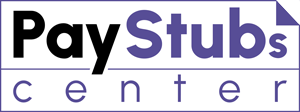If you’re applying for a loan, renting an apartment, or simply keeping payroll records for yourself or your employees, you’ll almost certainly be asked to provide pay stubs.
For traditional employees, pay stubs are issued automatically with each paycheck. But if you’re self‑employed, a freelancer, a contractor, or running a small business, you may need to create your own — and it can feel intimidating at first.
The good news? Making a pay stub online is the easiest, fastest, and most reliable way to generate a professional, compliant document.
This guide will walk you through:
✅ Why pay stubs matter
✅ What information and documents you need before you start
✅ Step‑by‑step instructions for using an online generator
✅ Tips for ensuring your pay stub is accepted
Whether you’re creating a stub for yourself or for employees, this resource will help you do it right the first time.
Why Pay Stubs Matter
A pay stub (also called a payslip or paycheck stub) is a record of what you earned over a specific pay period. It shows your gross earnings, deductions (like taxes and benefits), and your net pay — the amount you actually take home.
You may need a pay stub if:
- A lender asks for proof of income for a car loan, mortgage, or personal loan.
A landlord requires evidence of income for a rental application.
You’re a small business owner and want to issue stubs to employees or contractors.
- You’re tracking income for tax purposes or resolving disputes.
Because lenders and landlords rely on pay stubs to assess your financial stability, it’s important to produce a clean, accurate, and professional‑looking document.
Why Use an Online Pay Stub Generator?
You could create a pay stub manually using spreadsheets or word processors — but this approach is time‑consuming, error‑prone, and often unprofessional.
An online pay stub generator is a better choice because:
✅ It saves time — you can create a stub in minutes.
✅ It performs calculations for you — no math mistakes.
✅ It produces a standardized, professional document that meets expectations.
✅ It’s accessible from anywhere — no need to install payroll software.
What You Need Before You Start
Before you open up a pay stub generator, it helps to gather all the necessary information and supporting documents. Having these ready will make the process smooth and ensure your stub is accurate.
Here’s a checklist of what you’ll need:
1. Personal & Employer Information
Your full legal name
Employer or business name (if you’re self‑employed, this can be your own name or your company’s)
Employer or business address & contact info (optional, but recommended)
2. Pay Period Details
Start and end date of the pay period (weekly, bi‑weekly, monthly, etc.)
Date the paycheck is issued
3. Earnings
Your gross pay (before deductions)
Your hourly wage & number of hours worked, or
Your salaried amount per pay period
Any additional income, such as bonuses or commissions
4. Deductions
You’ll also need to account for deductions that reduce your take‑home pay. These typically include:
Federal, state, and (if applicable) local taxes
Social Security & Medicare (FICA)
Health, dental, or vision insurance premiums
Retirement contributions (like a 401(k))
Other deductions (such as union dues or wage garnishments)
Tip: If you’re unsure of the tax rates, the generator usually calculates these for you based on your state and income.
5. Year‑to‑Date Totals (Optional but Helpful)
Some generators allow you to include year‑to‑date (YTD) totals, which show how much you’ve earned and paid in deductions so far this year. This can be useful for lenders or landlords who want a broader picture of your income.
Step‑by‑Step: How to Make a Pay Stub Online
Once you’ve gathered all the information above, you’re ready to generate your pay stub. Here’s how:
Step 1 — Enter Your Information
Start by filling out your personal and employer details, including names, contact information, and your pay period dates.
Step 2 — Add Earnings & Hours
If you’re hourly, enter the number of hours worked and your hourly rate.
If you’re salaried, enter your gross salary for the pay period.
Don’t forget to include bonuses or commissions if applicable
Step 3 — Input Deductions
The generator may automatically calculate standard taxes and deductions based on your location and income.
If you have additional voluntary deductions (like health insurance or retirement contributions), enter those too.
Step 4— Preview the Stub
Before finalizing, the generator will display a preview of your pay stub.
✅ Double‑check that names, addresses and all the information you entered are correct.
✅ Ensure it includes all standard fields: gross pay, deductions, net pay, YTD totals if applicable.
Step 5 — Download & Save
Once you’re happy with the preview, download your pay stub to visulaize the final version of the pay stub, which includes the correct calculations, as a PDF.
You can print it, email it, or upload it directly to your lender, landlord, or employee records.
Tips for a Professional Pay Stub
✅ Be Accurate & Honest — Only enter real, verifiable information. Inflated or fake numbers can lead to rejection or even legal trouble.
✅ Keep It Clean — Choose a generator with professional templates that look polished and readable.
✅ Check Compatibility — Make sure the stub includes everything lenders or landlords typically expect:
Employee and employer information
Pay period & issue date
Gross pay, deductions, net pay
Year‑to‑date totals
✅ Save Copies — Keep digital and printed copies of your pay stubs for your own records and for tax season.
Frequently Asked Questions
Is it legal to create my own pay stub?
✅ Yes — as long as the information you provide is truthful and accurate. Many freelancers, contractors, and small business owners create their own pay stubs.
Can I use an online‑created pay stub for a loan or rental application?
✅ Absolutely. Most lenders and landlords care about the accuracy and clarity of the stub, not how it was created.
What if I’m self‑employed?
✅ No problem. You can still generate a pay stub using your actual income and business details. Many self‑employed people create pay stubs to document their earnings professionally.
Final Thoughts: Make It Easy on Yourself
Creating a pay stub doesn’t have to be complicated. With the right information and a good online generator, you can produce a professional, compliant document in just a few minutes.
Having accurate pay stubs not only helps you secure loans, leases, and credit, but it also helps you keep organized records of your income — a habit that benefits you at tax time and beyond.
Ready to Create Your Pay Stub?
If you’ve got your information handy and you’re ready to generate a professional, lender‑ready pay stub today — our trusted pay stub generator can help you do it quickly, accurately, and confidently.


